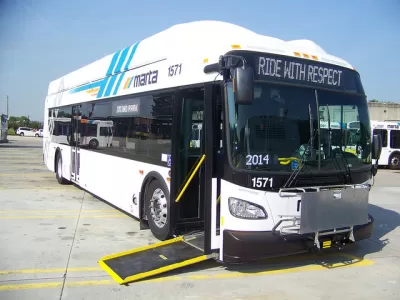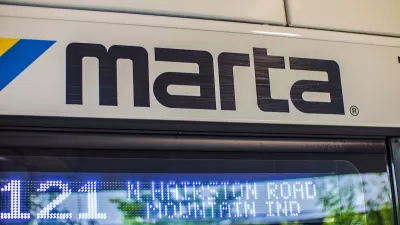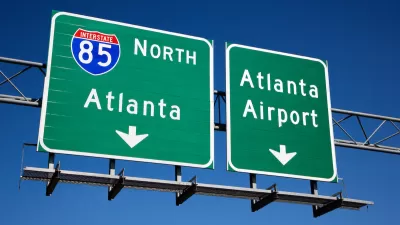The agency says BRT will cost less, be completed faster, and provide more frequent service than the commuter rail option.

A Mass Transit staff report details the Metropolitan Atlanta Rapid Transit Authority’s (MARTA) decision to choose bus rapid transit (BRT) over commuter rail for the State Route 54 extension of its service into Clayton County.
According to the report, “The planned 22-mile BRT on State Route 54 will include 17 proposed stops and connect East Point rail station to Mountain View, Forest Park, Clayton State University, Jonesboro, the Clayton County Justice Center and Lovejoy in Clayton and East Point and Hapeville in Fulton County.” The report explains, “MARTA explains the commuter rail option encountered a variety of obstacles with right-of-way acquisition, environmental and historical resource concerns, along with a ballooning cost estimate.”
As MARTA General Manager and CEO Collie Greenwood stated, “We recently traveled to Indianapolis with the Clayton delegation and saw first-hand the benefits of BRT and how it makes more sense for this transit corridor and will provide faster, more frequent service at a much lower cost.” The report adds that the BRT line “can be built in half the time as that of commuter rail and once completed operates at a higher frequency, providing service all day rather than just during peak commute times.”
Officials also say BRT will offer more frequent, two-way service all day long, as opposed to one-way service that would have been offered by commuter rail.
FULL STORY: MARTA to pursue BRT for Clayton County

Alabama: Trump Terminates Settlements for Black Communities Harmed By Raw Sewage
Trump deemed the landmark civil rights agreement “illegal DEI and environmental justice policy.”

Planetizen Federal Action Tracker
A weekly monitor of how Trump’s orders and actions are impacting planners and planning in America.

The 120 Year Old Tiny Home Villages That Sheltered San Francisco’s Earthquake Refugees
More than a century ago, San Francisco mobilized to house thousands of residents displaced by the 1906 earthquake. Could their strategy offer a model for the present?

In Both Crashes and Crime, Public Transportation is Far Safer than Driving
Contrary to popular assumptions, public transportation has far lower crash and crime rates than automobile travel. For safer communities, improve and encourage transit travel.

Report: Zoning Reforms Should Complement Nashville’s Ambitious Transit Plan
Without reform, restrictive zoning codes will limit the impact of the city’s planned transit expansion and could exclude some of the residents who depend on transit the most.

Judge Orders Release of Frozen IRA, IIJA Funding
The decision is a victory for environmental groups who charged that freezing funds for critical infrastructure and disaster response programs caused “real and irreparable harm” to communities.
Urban Design for Planners 1: Software Tools
This six-course series explores essential urban design concepts using open source software and equips planners with the tools they need to participate fully in the urban design process.
Planning for Universal Design
Learn the tools for implementing Universal Design in planning regulations.
Clanton & Associates, Inc.
Jessamine County Fiscal Court
Institute for Housing and Urban Development Studies (IHS)
City of Grandview
Harvard GSD Executive Education
Toledo-Lucas County Plan Commissions
Salt Lake City
NYU Wagner Graduate School of Public Service





























